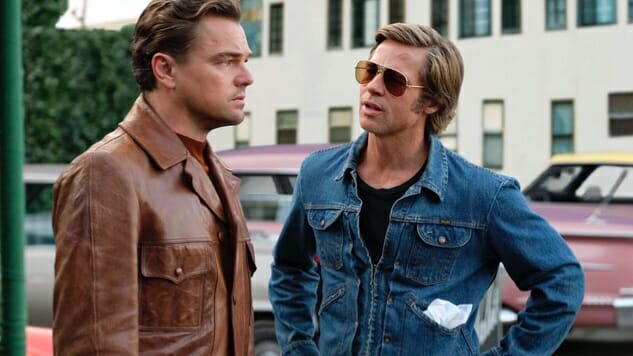Once Upon a Time in Hollywood Punches Straight Down

(Note: This article contains spoilers for Once Upon a Time in Hollywood.)

Quentin Tarantino’s latest is an immaculately crafted world all of its own, evocative of feelings he’s never explored before, with shades of tenderness I didn’t think him capable of. It’s also one of the most strangely regressive and nakedly self-indulgent movies he’s ever made. It sits atop some rancid subtext, taking shots at people who, while they are historical figures, still represent tensions and power dynamics that live and bleed today.
Once Upon a Time in Hollywood is a good movie by any standard you could measure it against, the result of years of a skilled filmmaker honing his abilities. Tarantino is nevertheless getting a pass from just about every reviewer I’ve read.
He treated Bruce Lee unfairly and in a way that is racist and it was not a dream, guys.

The scene burning up the interwebs is a flashback involving Brad Pitt’s stuntman, Cliff, and Bruce Lee (a portrayal by Mike Moh so spot-on in look and manner that Lee’s own daughter has conceded it was a good likeness, even as she has expressed hurt at the scene as a whole). Cliff remembers a time when he was on set with a bloviating Bruce Lee, whose boasting he scoffs at. Lee picks a fight with him, and the two trade a few blows. While Lee does knock Cliff on his ass once, Cliff slams Lee into a car door and their best-two-out-of-three knockdown fight is interrupted by the director’s (justifiably) pissed off wife.
It was really instructive, listening to the parts my mostly white Central Illinois audience was laughing at: Moh’s eerily accurate recreation of the intense vocalizations Lee always made in films, or the part where, when somebody shouts that Cliff was “beating the shit out of Bruce,” he tries to play it cool by saying, “Nobody beat the shit out of Bruce!”
People have written on this scene to defend Tarantino’s choice to portray Lee as a strutting braggart and a speechifying lecturer, which were both well-documented aspects of his personality. You can argue that it’s okay to send up a historical figure, but the issue is that encouraging folks to chuckle at Bruce Lee is not the same thing as, say, scoring a joke off of Napoleon Bonaparte’s height. Lee faced deep-seated racism in Hollywood, and despite showcasing incredible talent and training a generation of movie stars in martial arts (yes, including Sharon Tate in exactly the way the film shows), he only became truly famous posthumously when Enter the Dragon debuted.
For extra points, he calls Lee “Kato,” always with a sneer, as if to remind him that no matter how big he might think he is, he’s still just a sidekick, which is precisely what he and generations of Asian actors have faced and continue to face. Some of the online conversation surrounding the scene has posited it might be a daydream or the like, but there’s nothing about it that indicates it’s anything other than a straightforward flashback. Is it really that unthinkable that Quentin Tarantino might have, you know, filmed an insensitive scene?
Stunt coordinator Robert Alonzo has revealed that the scene was originally supposed to be longer and to end in Cliff defeating Lee, a prospect that was so ridiculous to Pitt and Alonzo that they reportedly saved Tarantino from himself and lobbied to truncate the fight to the version now in theaters. Apparently, though, Cliff was supposed to win with a cheap shot, which would have been an unbelievably bad look.
-

-

-

-

-

-

-

-

-

-

-

-

-

-

-

-

-

-

-

-

-

-

-

-

-

-

-

-

-

-

-

-

-

-

-

-

-

-

-

-










































